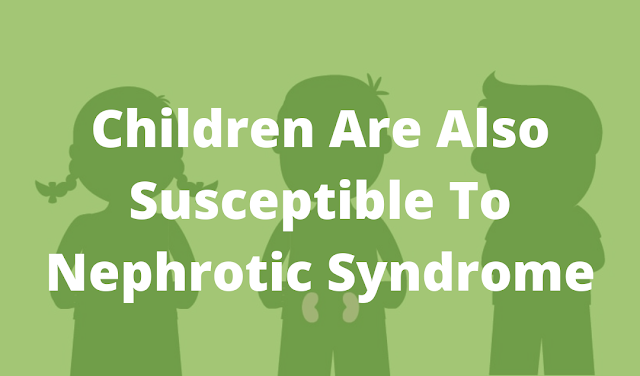What is Childhood Nephrotic Syndrome?
It is a kidney related condition characterized by the loss of protein named albumin from the blood. It is normal to have a small amount of protein that is left after digestion to leak through the urine. But if the amount of protein loss is more it leads to a condition called nephrotic syndrome. Proteins are large and complex molecules that perform a number of vital functions in the body. Losing protein from the blood can be quite problematic for your child as the situation does not let them grow properly.
There are two types of childhood nephrotic syndrome:
- Primary: This type of nephrotic begins in the kidneys and impacts the kidneys only
- Secondary: This is another type of nephrotic caused by other underlying conditions
What causes child nephrotic syndrome?
There are still no known causes of childhood nephrotic syndrome but researchers have linked certain diseases and conditions that damage the health of the kidneys in the children. These diseases include:
- Congenital disease: Diseases that are caused even before a baby is born are called congenital diseases. They can directly or indirectly become the reason of childhood nephrotic syndrome.
- Other conditions include infections that cause changes in the function of the body or reduce their function.
Which children are at the risk of childhood nephrotic syndrome?
Children are more at the risk of secondary childhood nephrotic syndrome if they:
- Have a disease that damages the filters of the kidneys
- Are onto certain types of medications
- Bing infected with some infections related to kidneys
What are the signs of childhood nephrotic syndrome?
The signs that should be looked for in your child are:
- Edema or swelling: Most often in legs, feet, or ankles or around the face or your eyes
- Protein loss: Having a high level of protein in the urine
- Hyperlipidemia: When a child has a level of cholesterol and fat in the blood than what is normal
Other symptoms that should be prominently looked for are:
- Pain when urinating
- Weakness
- Food intolerance
- Short tempered
- Diarrhea
- High blood pressure
- Fever, lethargy
- Blood in the urine
- Abdominal pain
- Frothy urine
What are the Complications that your Child may Face?
There are certain health conditions that may complicate the life of your child and these may include:
- Infection: When the kidneys are damaged, the child’s immune system becomes weak because of the protein leak. Protein prevents the body against infections and the loss of it makes them more prone to infections. Be sure to vaccinate them yearly to prevent infections and acute conditions from growing in the body.
- Blood clots: Blood clots can obstruct the flow of blood to the various parts of the body thereby creating problems in the transportation of oxygen. This happens because of albumin loss which prevents clots from forming inside the blood.
- High cholesterol level: The albumin level in the blood severely drops down when you lose this protein during nephrotic syndrome. The liver in our body the starts making more albumin to compensate for the loss but at the same time liver forms more cholesterol as well thereby raising the blood cholesterol level.
These complications of the nephrotic syndrome create hindrance in the proper growth of the child. Nephrotic syndrome is an indication of kidney damage and should be treated at the earliest with the help of nephrotic syndrome ayurvedic treatment. Leaving the condition untreated may further develop the risk of renal failure as the child age.
Karma Ayurveda knows how precious it is to be to see your child grow properly. We offer ayurvedic medicines to ensure that nephrotic syndrome leaves no side effects on your child. Further, the treatment to cure nephrotic with Nephrotic syndrome ayurvedic medicine does not use blood thinning medications, a diuretic that may only suppress the signs but not cure the disease in the long run.
If you wish to know more about kidney disease treatment in ayurveda, then connect with Doctor Puneet Dhawan!




No comments
Post a Comment